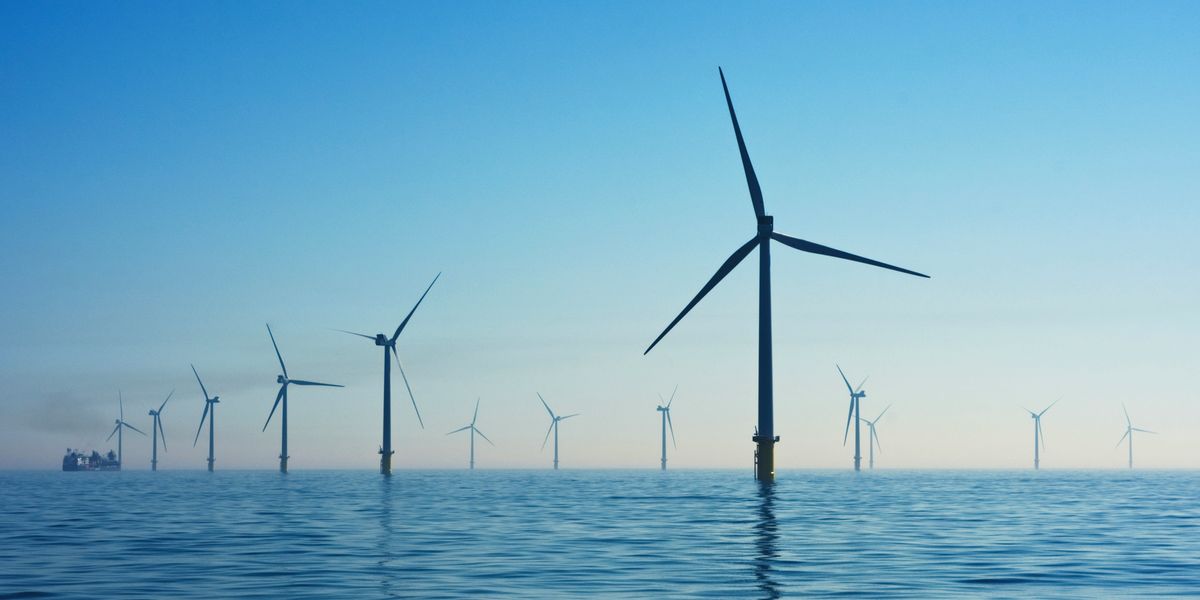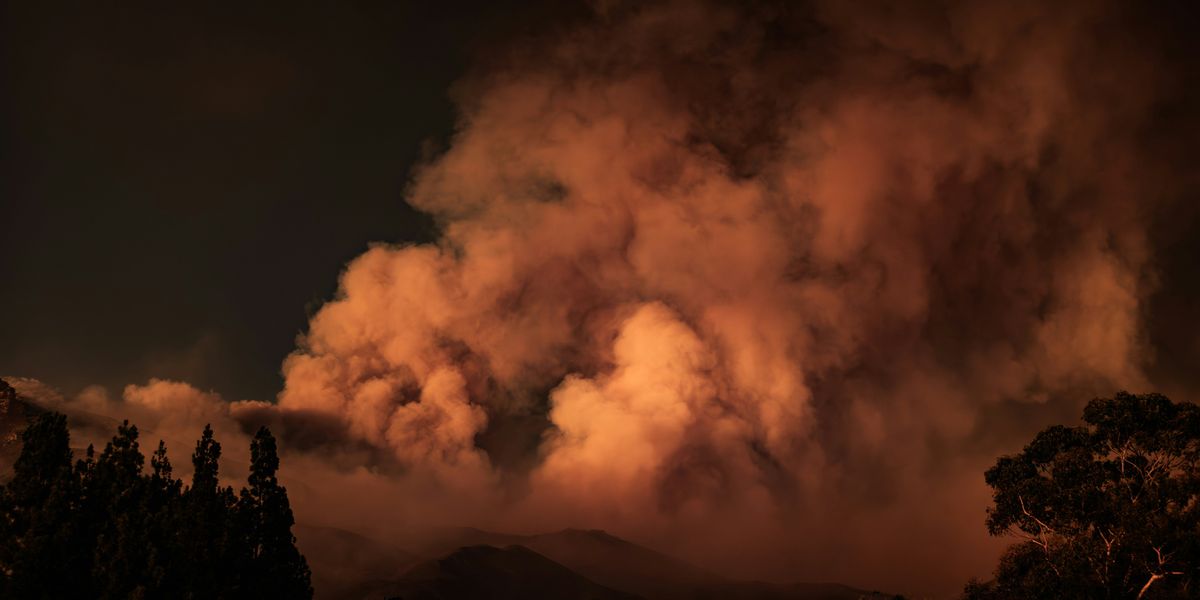
In the crucial swing state of Pennsylvania, new poll finds 90% of respondents support stricter fracking regulations
“Pennsylvanians are deeply ambivalent about fracking.”
PITTSBURGH — Nine in ten Pennsylvanians support stricter regulations on the fracking industry, while 42% would support an outright ban on fracking, according to a new poll.
During a U.S. presidential election cycle where it’s been assumed that presidential candidates must be pro-fracking to win votes in the swing state of Pennsylvania, these results highlight that Pennsylvania voters have a more nuanced view of the industry.
“Pennsylvanians are deeply ambivalent about fracking,” Sean O’Leary, a senior researcher with the Ohio River Valley Institute, the progressive think tank that commissioned the polling, said in a statement. “They see and experience the noise and pollution. They fear for their health and the health of their families.”
The poll, conducted by Upswing Research, a progressive political research and strategy company, surveyed 700 likely voters from across Pennsylvania and across the political spectrum about various issues, including the presidential election, fracking and renewable energy development. The findings are similar to what previous polls have found about Pennsylvanians’ views on fracking.
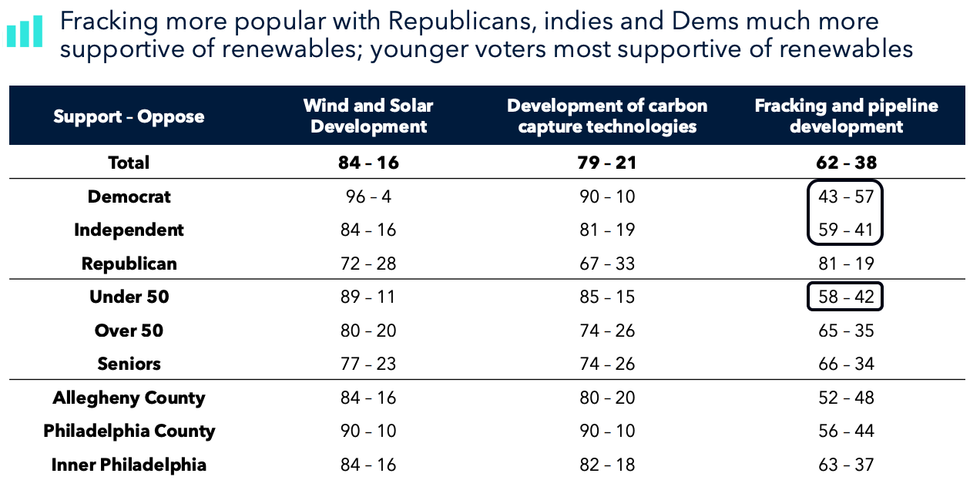
Credit: Upswing/Ohio River Valley InstituteFracking Survey Analysis
According to the new poll, more than 4 in 10 (42%) Pennsylvanians support an outright ban on fracking, and nearly half of Pennsylvanians say they’re opposed to or unsure about fracking.
The survey also found that:
- 82% of Pennsylvanians are concerned about air pollution
- 86% are concerned about water pollution
- 79% are concerned about the impacts of pollution on health
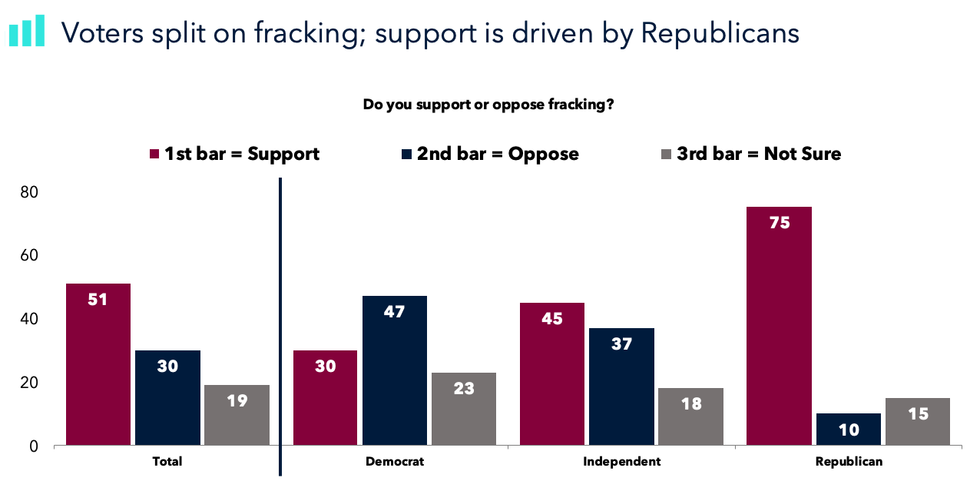
Credit: Upswing/Ohio River Valley InstituteFracking Survey Analysis
It’s been about a year since the Pennsylvania’s department of health published a series of studies on health and fracking that linked living near oil and gas wells with increased risk of childhood cancer, asthma and low birth weights. Recently, residents called on state officials to do more to protect the health of Pennsylvanians.
Despite the health concerns, Pennsylvanians remain split on whether natural gas is an important energy source. Even if more than half of respondents (51%) said that “instead of fracking, PA should be investing in other renewable energies like wind, solar and nuclear,” more than half of all respondents (58%) still said fracking “should be encouraged to provide a cheaper source of energy,” and that fracking is “an important part of the clean energy transition” (59%).
Support and opposition to fracking were generally split along party lines in the poll, with Democrats more likely to support a ban on fracking and increased renewable energy, while Republicans were more likely to support the practice.
Support for stronger fracking regulations was more evenly distributed. While 90% of respondents across the political spectrum said they’d support increasing the distance between fracking wells and schools and hospitals, support was even higher for other health-protective measures: 92% of respondents said they’d support more air monitoring near well sites, 93% said they’d support requirements for safer transport of fracking waste, and 94% said they’d support more public disclosure of drilling chemicals.
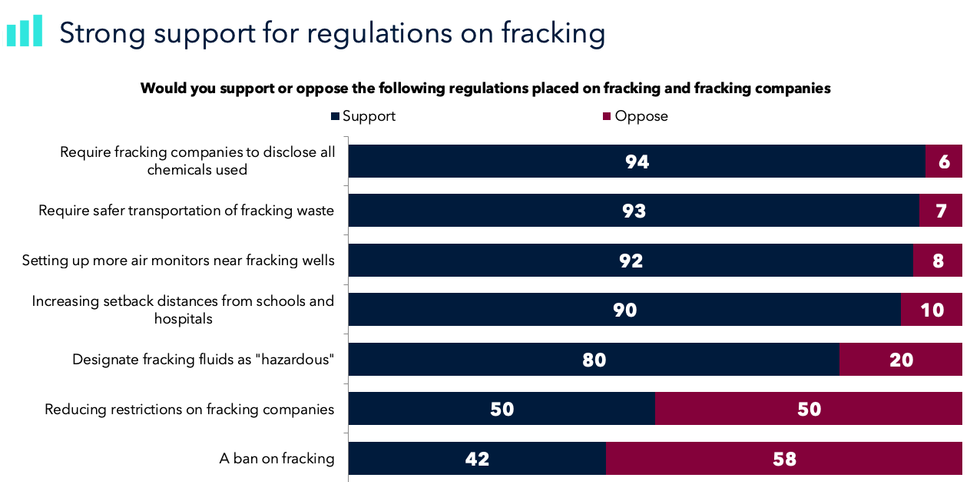
Credit: Upswing/Ohio River Valley InstituteFracking Survey Analysis
These safety measures were among the regulatory changes proposed as part of a grand jury investigation on the health effects of fracking that was completed in 2020 by then-attorney general Josh Shapiro, who now serves as governor of Pennsylvania. Environmental health advocates have expressed frustration over Shapiro’s shifting stance on fracking since he became governor.
In 2023, Shapiro launched a partnership with CNX corporation, a Pittsburgh-headquartered fracking company, which involves the company performing air and water quality monitoring at 14 of its approximately 500 fracking sites in Pennsylvania and disclosing some of the chemicals it uses at those wells. But advocates have complained that the company, which has been cited for more than 2,000 environmental violations by state regulators and convicted of lying about its air emission data, can’t be trusted to monitor itself. The recently published polling suggests that Pennsylvania voters agree with this view, with more than half of respondents (58%) saying that they “distrust fracking companies to self-report environmental and public health impacts of their industry.”
Does fracking really provide jobs and drive economic growth?
Research conducted by the Ohio River Valley Institute suggests the fracking boom has done little to boost local economies in Appalachia. Since the beginning of the Appalachian fracking boom in 2008, the 22 largest gas producing counties in Pennsylvania, Ohio and West Virginia have lost a collective 10,000 jobs and nearly 50,000 residents, even as gas production far outpaced industry expectations, according to the Ohio River Valley Institute. As of 2021, oil and gas industry jobs comprised just 1.44% of total jobs in Pennsylvania.
Other research has made similar findings about the ultimate economic costs and benefits of fracking.
Despite the data, the debate about the local costs and benefits of fracking often focuses on jobs and economic development. In a recent example, a political television ad from Republican Senate candidate Dave McCormick that’s frequently airing in the state claims that Vice President Harris would make hundreds of thousands of fracking-dependent jobs in Pennsylvania “disappear.”
That ad has been dubbed “misleading” by Factcheck.org, both for claiming that Harris would ban fracking in Pennsylvania (she has said that she wouldn’t and U.S. presidents don’t hold the power to do that), and for the job figures it cites.
“Were it not for the barrage of unfounded claims from state policymakers that the industry is an engine for jobs, opposition [to fracking] would be even greater,” O’Leary said.




